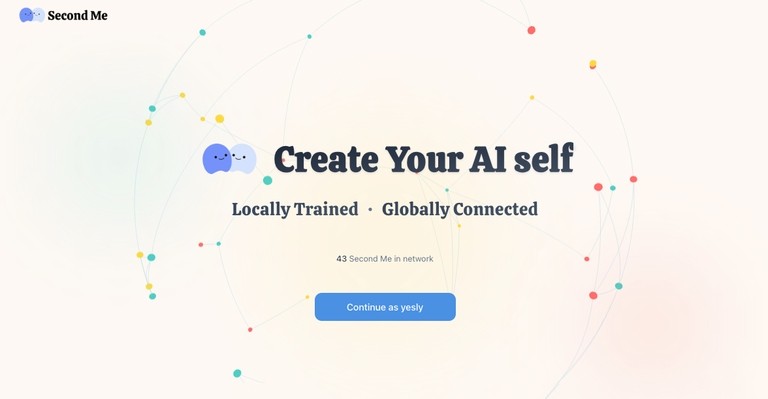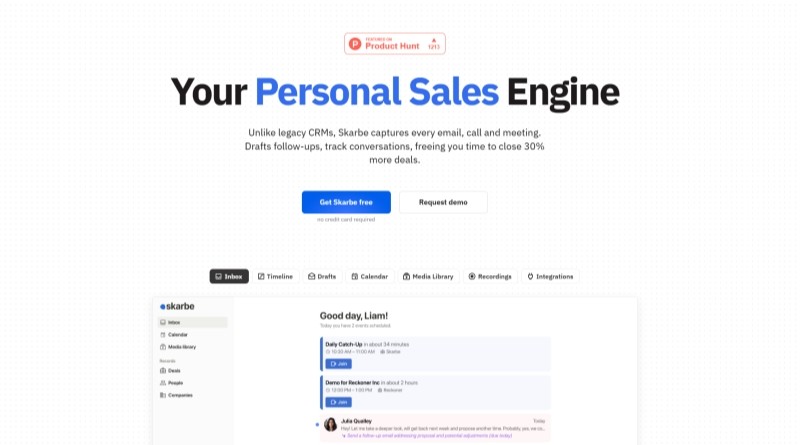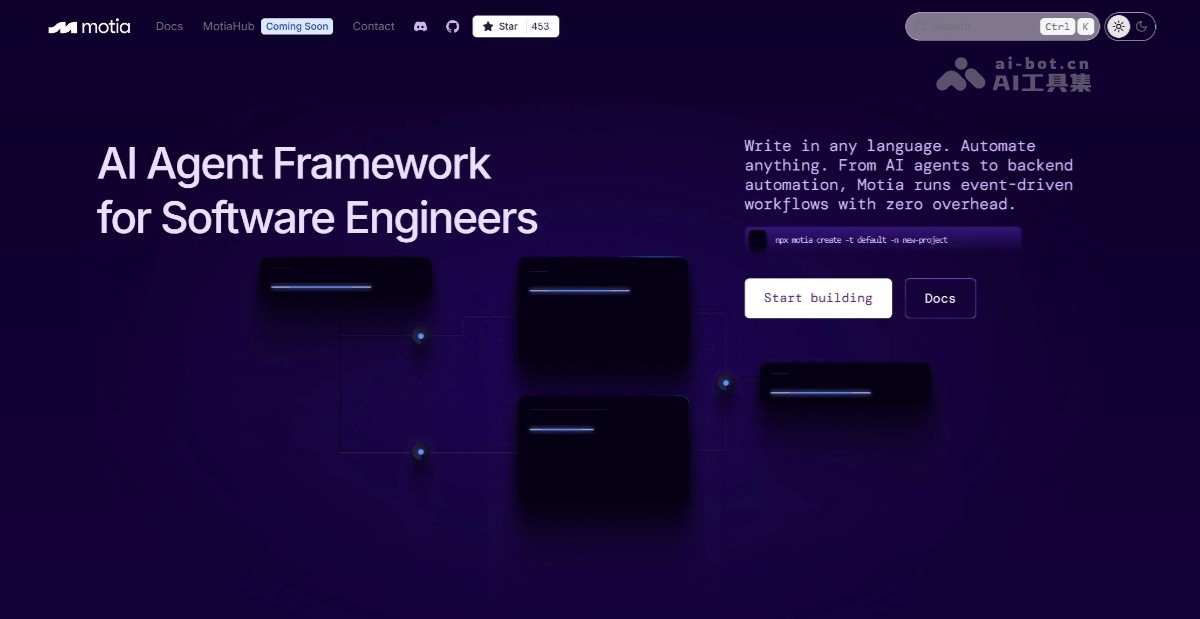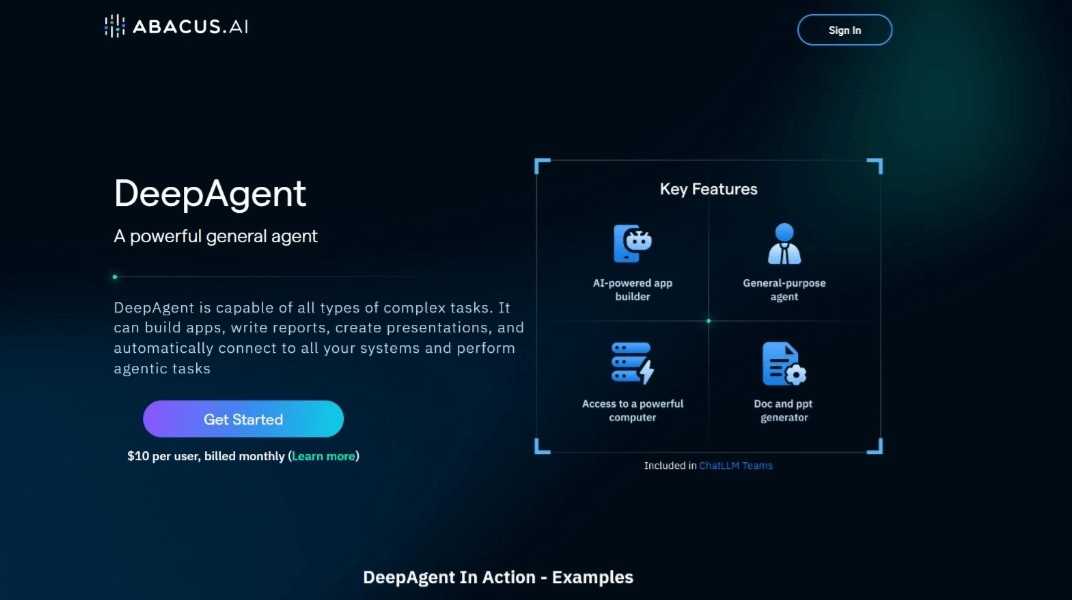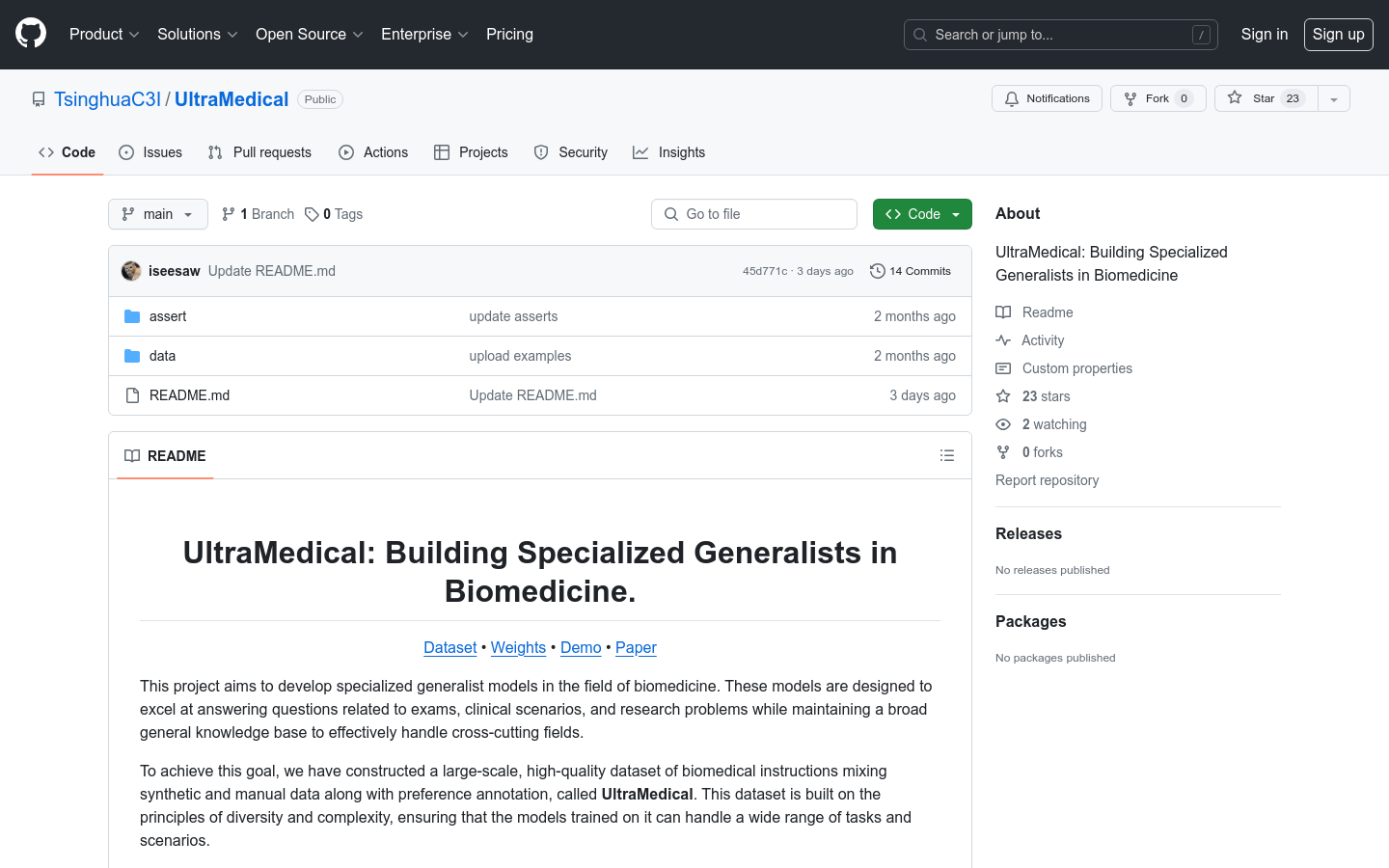
The UltraMedical project aims to develop specialized general models for the biomedical field. These models are capable of answering exams, clinical scenarios, and research questions while possessing a broad base of general knowledge to effectively handle cross-domain problems. Train large language models on the UltraMedical dataset by using advanced alignment techniques, including Supervised Fine-Tuning (SFT), Direct Preference Optimization (DPO), and Odds Ratio Preference Optimization (ORPO), to create powerful and versatile models that are efficient Serving the needs of the biomedical community.
Demand group:
The UltraMedical model is suitable for use by researchers, doctors, and students in the biomedical field because it provides professional answers relevant to exams, clinical scenarios, and research questions, while having a broad base of general knowledge to help them deal more effectively with medicine across fields. question.
Example of usage scenario:
Answers to questions in medical exams.
Professional consultation in clinical scenarios.
Professional analysis of biomedical research problems.
Product features:
Build UltraMedical a large-scale, high-quality biomedical instruction data set.
Enhance data diversity and complexity using a mix of synthetic and artificial data and preferred annotations.
Adopt advanced alignment techniques such as supervised fine-tuning (SFT), direct preference optimization (DPO), and odds ratio preference optimization (ORPO).
Provides language models of different sizes, including 7B-level and 70B-level models.
Achieved excellent average results in multiple medical benchmark tests.
Limitations of the model, such as hallucination issues and potential biases, are planned to be addressed in future studies.
Usage tutorial:
Visit UltraMedical ’s GitHub page for project information and resources.
Read the project documentation to understand the model's architecture and functionality.
Download or access the model training dataset UltraMedical .
Choose the appropriate language model scale for experiments or applications according to your needs.
Test model performance and accuracy on biomedical problems.
Adjust how the model is used or its parameters based on feedback and results.
